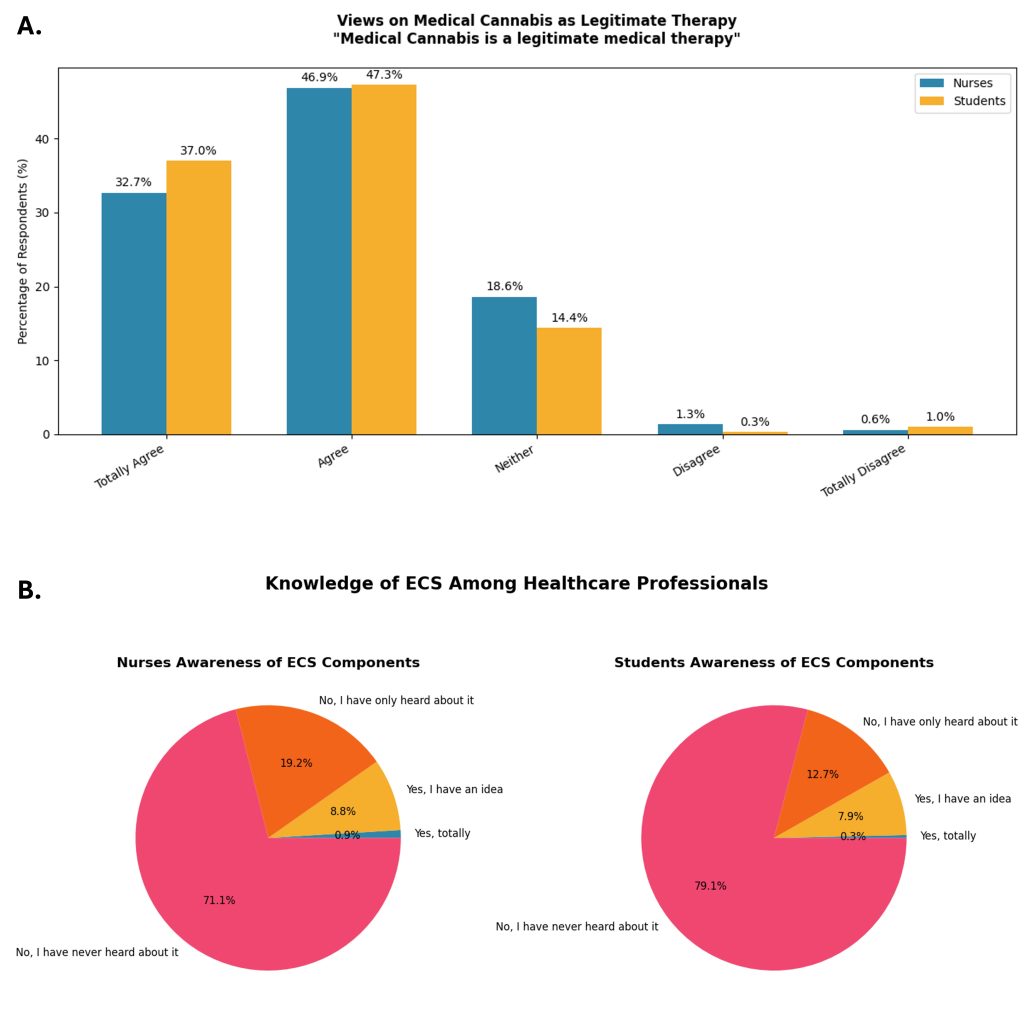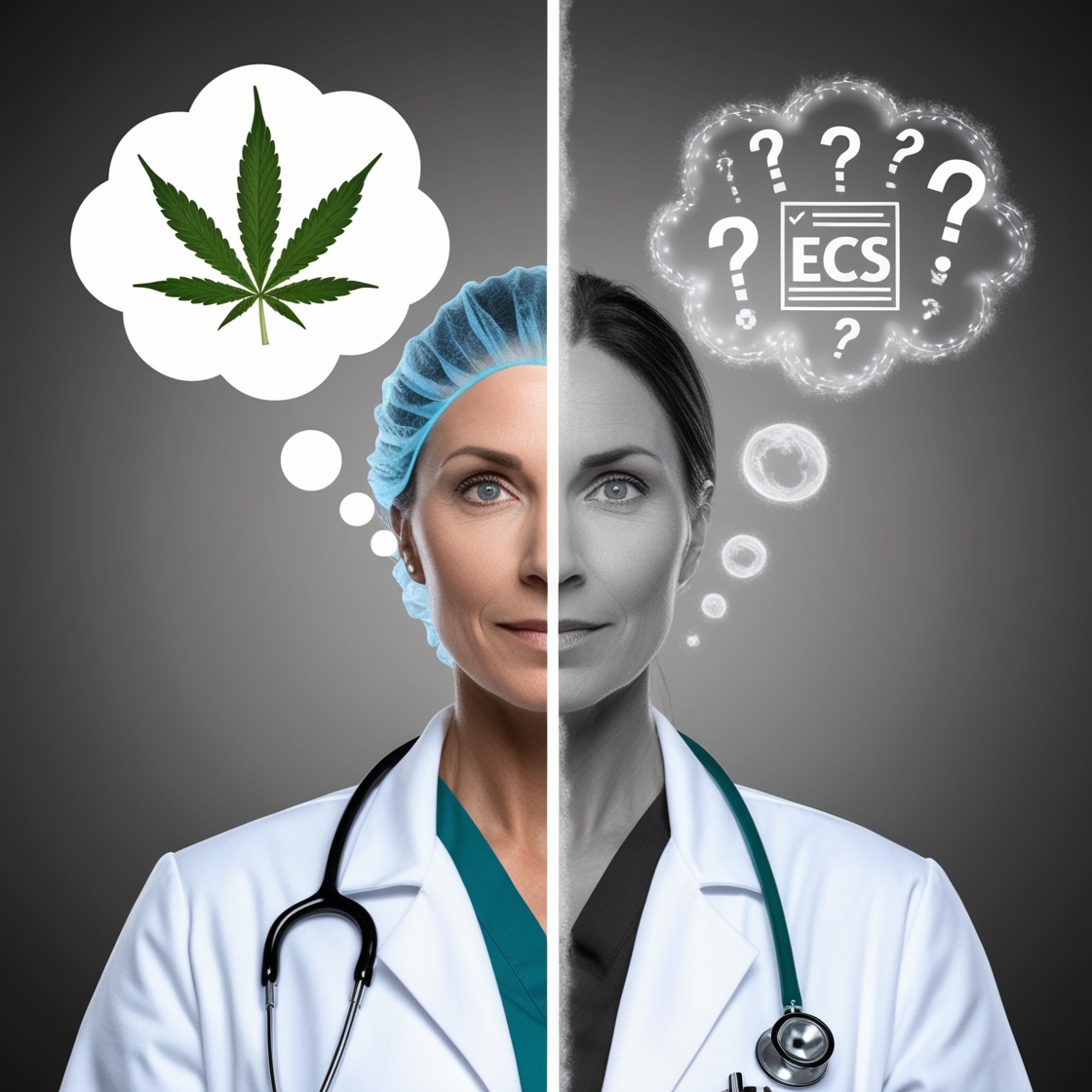The endocannabinoid system (ECS) represents one of the most fundamental physiological systems in our body, yet a recent study from Portugal reveals a striking paradox in healthcare education. As illustrated in Figure 1, while healthcare professionals have overwhelmingly begun to accept cannabis as medicine, they lack basic understanding of the system through which it primarily works.

The Numbers Tell a Story
The research presents a fascinating dichotomy (Figure 1A). A combined 79.6% of nurses (32.7% totally agree, 46.9% agree) and 84.3% of nursing students (37.0% totally agree, 47.3% agree) acknowledge medical cannabis as a legitimate therapy. The near-identical response patterns between nurses and students suggest this acceptance transcends professional experience levels.
However, when examining ECS knowledge (Figure 1B):
- 71.1% of nurses have never heard of the ECS components.
- 79.1% of nursing students are unfamiliar with the system.
- A mere 0.9% of nurses and 0.3% of students claim comprehensive understanding.
The Educational Challenge
This knowledge gap mirrors a broader issue in medical education worldwide. Healthcare professionals are increasingly encountering cannabis-based medicines without the foundational understanding necessary to optimize their use. Consider that 88.7% of nurses in the study felt insufficiently prepared to advise patients on medical cannabis use – a startling admission that reflects the current state of medical education.
Beyond Cannabis: The ECS as a Therapeutic Framework
Understanding the ECS isn’t merely about cannabis therapeutics – it’s about grasping a fundamental biological system that maintains homeostasis across our physiology. Just as we wouldn’t prescribe insulin without understanding the endocrine system, we shouldn’t approach cannabis medicine without comprehending the ECS.
Moving Forward: Bridging the Knowledge Gap
The stark contrast shown in Figure 1 between acceptance and understanding suggests an openness to learning that we must address. This represents an opportunity to introduce comprehensive ECS education that will:
- Enhance therapeutic decision-making
- Improve patient outcomes
- Enable more precise dosing strategies
- Foster better understanding of drug interactions
- Enable multimodal targeting of ECS
The path forward requires integrating ECS education into medical curricula, not as an optional addition but as a core component of medical education. Only then can we fully realize the therapeutic potential of both endogenous and plant-based cannabinoid medicines.
Final Thoughts
The Portuguese study highlights a critical inflection point in medical cannabis education. While acceptance of cannabis as medicine grows (Figure 1A), the foundation for understanding its therapeutic effects remains largely missing (Figure 1B). Addressing this disconnect through comprehensive ECS education represents one of the most significant opportunities for advancing modern medicine.
Reference:
Paiva C, Santos T, Cunha-Oliveira A, Rosendo I, Pita JR. Knowledge, opinions and experiences of nurses and nursing students in Portugal regarding the use of medical Cannabis. BMC Nurs. 2024;23(1):788. Published 2024 Oct 28. doi:10.1186/s12912-024-02443-5

